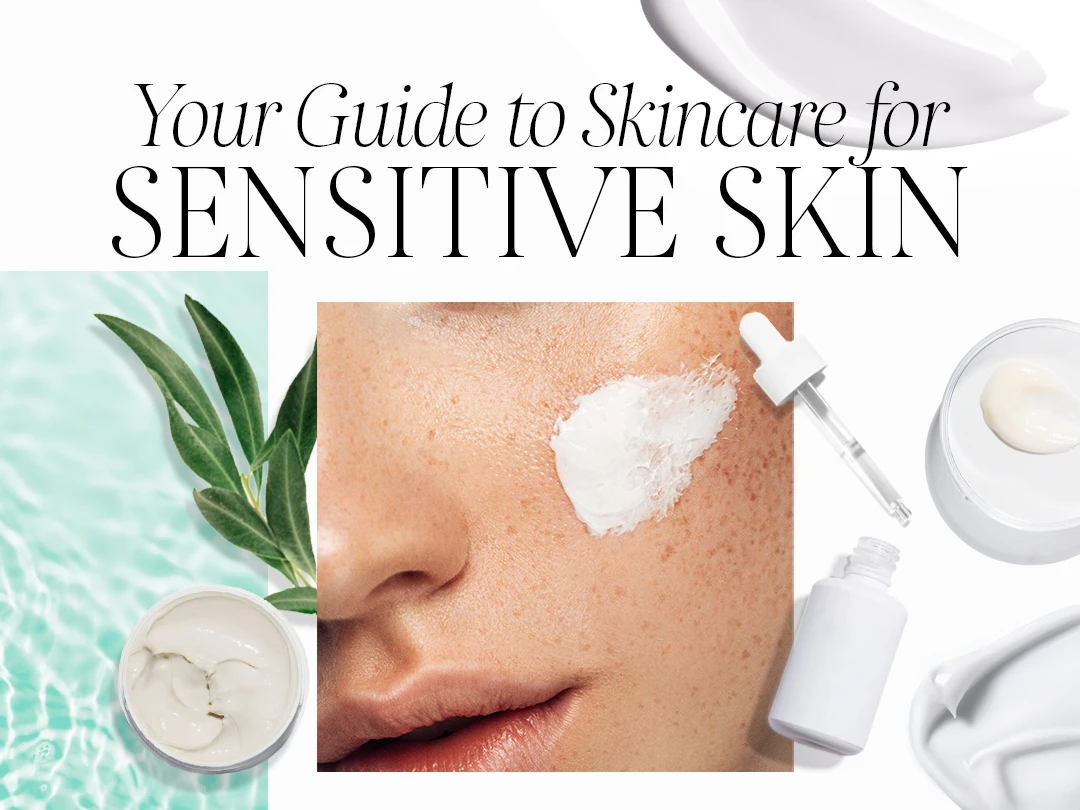What is the best skincare for sensitive skin?
Best Skincare for Sensitive Skin:
Sensitive skin requires extra care, as it is easily irritated by environmental factors, harsh ingredients, and even stress. The best skincare for sensitive skin is gentle, non-irritating, and supports the skin’s natural barrier. A simple, nourishing routine can help reduce redness, dryness, itching, and breakouts while keeping your skin calm and healthy.
1. Gentle Cleansing
Cleansing is essential, but harsh cleansers can strip the skin of its natural oils and worsen sensitivity. Choose a fragrance-free, soap-free, non-foaming cleanser that hydrates while it cleans. Look for ingredients like:
-
Glycerin – a gentle humectant that attracts moisture.
-
Panthenol (Pro-Vitamin B5) – helps soothe and repair.
-
Aloe Vera – known for calming properties.
Avoid scrubs, foaming cleansers, and anything with alcohol, sulfates, or artificial fragrance.
2. Hydrating and Repairing Moisturizers
Sensitive skin often has a compromised barrier that allows moisture to escape and irritants to enter. A good moisturizer is the foundation of your skincare routine. Look for:
-
Ceramides – restore and strengthen the skin barrier.
-
Hyaluronic acid – hydrates without clogging pores.
-
Squalane – mimics the skin’s natural oils and adds moisture.
-
Shea butter – deeply moisturizing and non-irritating.
Avoid products with essential oils, dyes, or lanolin, which can trigger sensitivity in some people.
3. Sun Protection
Sunscreen is non-negotiable, especially for sensitive skin, which is more vulnerable to UV damage. The best sunscreens are mineral-based (also known as physical sunscreens) because they are less likely to cause irritation. Look for:
-
Zinc oxide
-
Titanium dioxide
These ingredients sit on the skin’s surface and reflect UV rays rather than absorbing them, making them ideal for reactive skin. Choose a broad-spectrum SPF 30 or higher, and make sure it’s labeled "fragrance-free" and "non-comedogenic."
4. Avoid Irritating Ingredients
Sensitive skin often reacts negatively to common skincare additives. Avoid:
-
Fragrance (synthetic or natural)
-
Alcohol (especially denatured alcohol)
-
Essential oils (like lavender or citrus)
-
Harsh acids (like high-concentration glycolic acid)
Instead, opt for soothing ingredients such as:
-
Niacinamide – anti-inflammatory and barrier-repairing.
-
Colloidal oatmeal – calms itching and redness.
-
Centella Asiatica – reduces inflammation and promotes healing.
5. Patch Test Everything
Even “sensitive skin” products can sometimes cause reactions. Always do a patch test before applying a new product to your face. Apply a small amount to the inside of your wrist or behind your ear and wait 24 hours to check for a reaction.
6. Keep It Simple
The best skincare routine for sensitive skin includes just a few products:
-
Gentle cleanser (morning and night)
-
Moisturizer (twice daily)
-
Sunscreen (every morning)
Extras like serums or exfoliants can be added slowly and one at a time. Monitor your skin’s reaction and back off if irritation starts.
Conclusion:
For sensitive skin, the best skincare is gentle, minimal, and focused on hydration and barrier support. Use soothing ingredients, avoid common irritants, and protect your skin from the sun. With consistency and care, sensitive skin can become more resilient and less reactive over time.

Related Blog
What Causes Oily Skin and Can It Be Managed Naturally? Exploring Root Causes and Gentle Solutions
Aug 2, 2025 by Admin
General
What Are the Signs That You Have Sensitive Skin? Key Symptoms to Help You Identify This Delicate Skin Type
Aug 1, 2025 by Admin
General